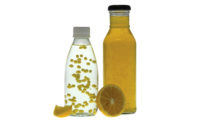A new study commissioned by the International Food Additives Council (IFAC) on carrageenan, a stabilizing ingredient that also is used to support texture and nutrients in many foods and beverages, demonstrated that the ingredient does not induce inflammation in human cells as claimed by carrageenan critics.
The study, which was conducted by toxicologist James M. McKim Jr., was recently accepted for publication by the peer-reviewed journal Food and Toxicology. The study represents the culmination of two years of research that was unable to replicate any of the findings of carrageenan critics, including those who claim the food ingredient contributes to certain adverse health outcomes.
McKim’s research showed carrageenan has no measurable effect on cells and provides strong evidence that carrageenan consumed in foods and beverages would not cause inflammation in humans.
“Dr. McKim's research confirms what we have known for decades; carrageenan has no impact on the human body when consumed in food,” said Robert Rankin, executive director of the IFAC, in a statement. “Carrageenan producers have taken very seriously claims that the ingredient is unsafe, thoroughly investigated the research supporting those claims and found them to be baseless."
Carrageenan is a common food ingredient used in many products, including chocolate milk and soy milk, for its stabilizing and thickening properties. It is naturally occurring in red seaweed grown and harvested around the globe.
McKim's study comes just months before the U.S. National Organic Standards Board (NOSB) is expected to vote on whether to reapprove the use of carrageenan in organic foods sold in the United States. Groups touting Tobacman's research have lobbied the U.S. Food and Drug Administration to ban carrageenan in all foods and the NOSB to remove it from organic products.
For more information about carrageenan and other ingredients and additives used in food production, visit www.foodingredientfacts.org.



